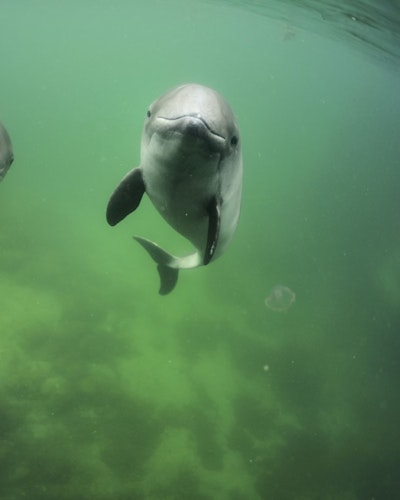
Sustainable commitment
Kullabergsguiderna in Skåne, south of Sweden, believe that sustainability work is not only about preserving and creating long-term solutions. It's also about improving the conditions for animals and nature in the area.
Kullaberg in south of Sweden is one of the most visited natural areas in Sweden. More than 500,000 visitors pass the guard annually, and in total the mountain is visited by several hundred thousand more. Kullabergsguiderna, who have been organizing porpoise (a small whale) safaris, hikes and climbs on Kullaberg for the past forty years, are well aware of how the increased number of people wears on the fragile and special nature here.
- Everyone can work with sustainability. We try to do that little extra to also improve the place, says David Arborelius.
- We work with a project called "Think about the porpoises" together with among others the Coast Guard and the University of Lund. Within the project we keep private boat owners informed about how they can avoid disturbing the porpoises. But we also contribute to research by collecting deceased porpoises for further examination. In this way, we help create an understanding of their lives and conditions.
Nature hosts direct guests
David tells us that the Kullabergsguiderna have been labeled with Nature's best since 2012 and that they since worked with sustainability. The tools in Nature's Best for how they should structure and work with their company provided insights and created a good sustainability plan to follow. Therefore, they also reacted strongly to the increased numbers of visitors to Kullaberg during the beginning of the pandemic.
- There were too many visitors. More than Kullaberg could handle. So, in collaboration with Swedish Länsstyrelsen, we introduced so-called nature hosts. They keep Kullaberg free from litter, inform the visitors and show them to less well-visited places in the area, says David.
Compensates by planting trees
David tells us that Kullabergsguiderna also compensate for their boat trips.
- We thought about how we could compensate for the fact that we drive boats for more than eight hours every day. Unfortunately, today there is no electric boat that can handle the capacity we need, so we decided to plant trees as compensation while we're waiting for such a boat.
- But we have a long-term plan and follow the development of electric boats closely. So we expect to have one within a ten-year period anyway, he concludes.